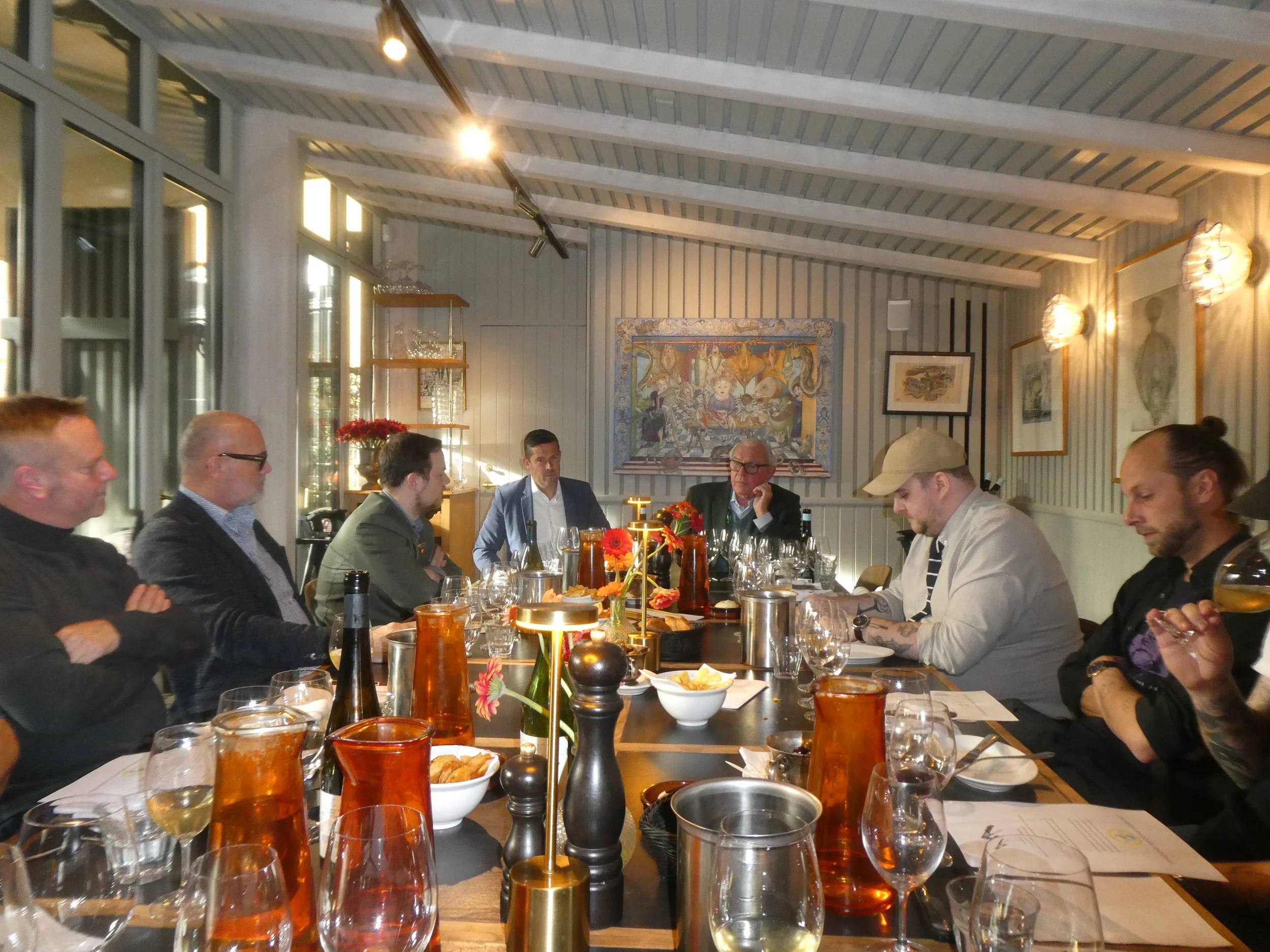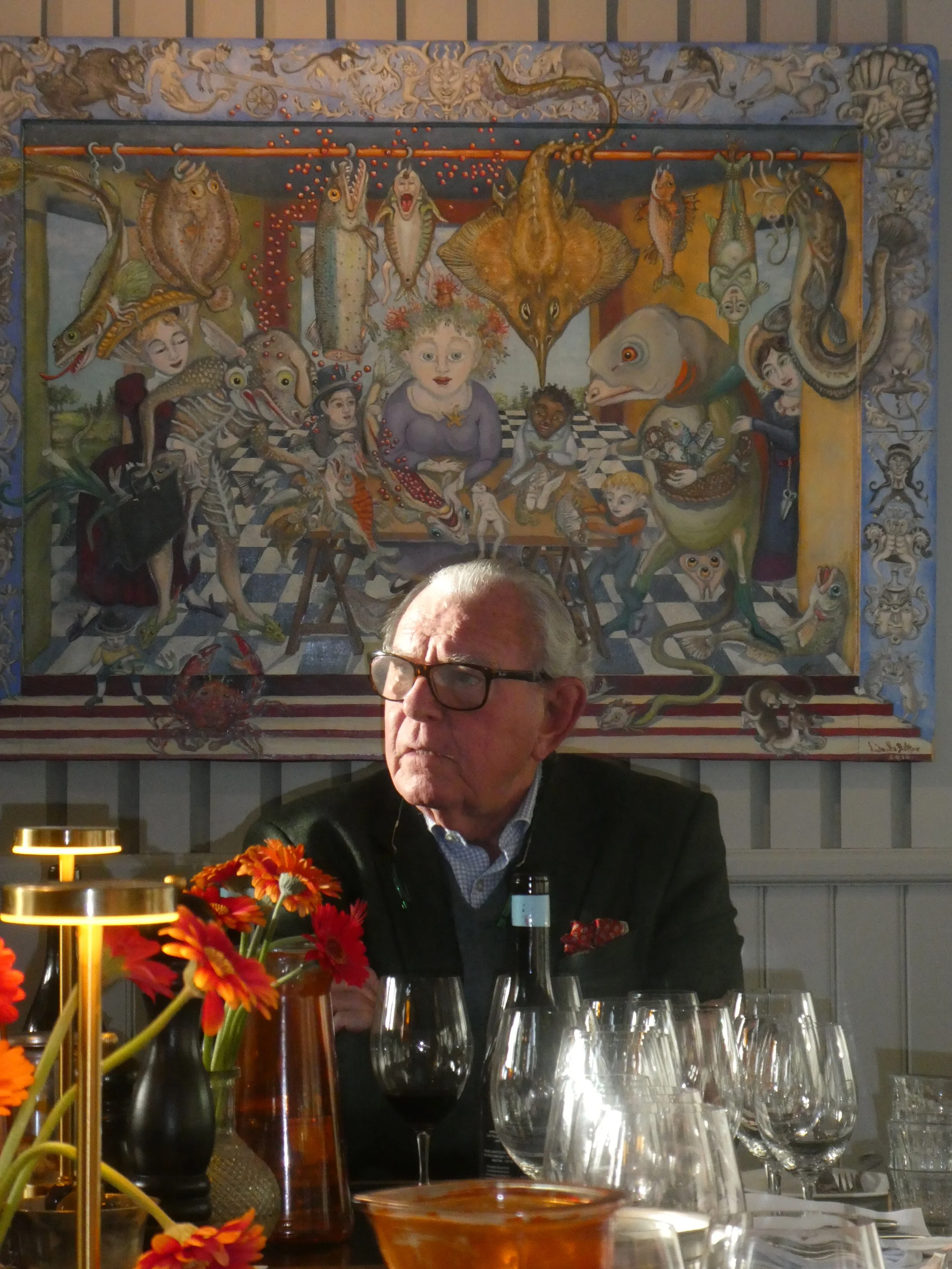DSF meet-up with Peter Vinding-Diers
Restaurant Mefisto in Aarhus. Image: Kenny Jess Brandt
There are not many Danes in the wine industry who have as much on their CV as the icon Peter Vinding-Diers, who has helped revolutionize the world of wine since 1969. First in South Africa from 1969-1974, then in Bordeaux in the years 1974-1998, where he discovered the importance of local, indigenous yeast cells, which he named R2, subsequently in Tokaj 1989-2000, where he helped found The Royal Tokaji Wine Company with his friend Hugh Johnson and finally from 2003 in Sicily, where he established Montecarrubo winery 90 km south of the volcano Etna.
And it is precisely Peter that we at the Danish Sommelier Association have invited for a meeting at Restaurant Mefisto in Aarhus this day. The presentation is about what the DNA of the vine means for the taste of the wine, but basically we have invited him to get an insight into his fantastic life with wine and of course also to taste the wines he makes on his Sicilian farm.
For my part, I met Peter for the first time last year, where it quickly became clear how much he has to offer. Not only in terms of wine, but in life in general. And everyone who knows him will probably not contradict me when I say that the 82-year-old globetrotter is a real man of the world; but of the old school.
The way he dresses in a shirt, sweater and blazer with a nice little red pocket hankerchief, the many stories, the way he speaks and finally the 10,000 books he has at home in Sicily. He comes from a different time – when general education was a more important word than it is today and where literature and classical music were a natural part of everyday life – and you can feel that right away.
Although he is well advanced in years, we meet a cheerful and sarcastic Peter among various snacks, glasses, wines, carafes and spittoons that are scattered around the well-set table at Mefisto.
Sponsored content from Laudrup Vin
Peter Vinding-Diers Image: Kenny Jess Brandt
With the six wines he has brought as a starting point, we cover many topics during the few hours we are together. From the importance of local yeast for a producer, over the significance of assemblage and how a vines DNA affects the taste of the wine and finally to his latest project to replace the world-wide and widely used copper sulfate – the Bordeaux mixture – with bacteria that naturally have the same effect.
As for the wines, we taste his two white wines, Il Piccolo 2024 and Vignolo 2024, both made on Grillo, as well as his four reds, Il Piccolo 2022, Il Carrubo 2022, Quant a Soi 2022 and Vignolo 2023, all of which are carried forward by Syrah. And the style of his wines is elegant and fruity with a strong focus on the origin and characteristics of the two grapes.
The atmosphere around the table is good, as we follow Peter back in time, over the present and into the future, where a generational change is at the door, as his son Anders is about to take over the running of the farm in Sicily.
Everything in life undergoes changes, and after a long and colorful life with wine, Peter is facing another life change. Where it will take him is uncertain, but if I know him right, it will contain wine, books, music and a lot of new adventures.
On behalf of our association, a big thank you goes to Fredrik Hierner and Thomas Axelsen from Laudrup Vin, who have been so kind as not only to bring Peter and his Montecarrubo wines, but also wines for blind tasting.






